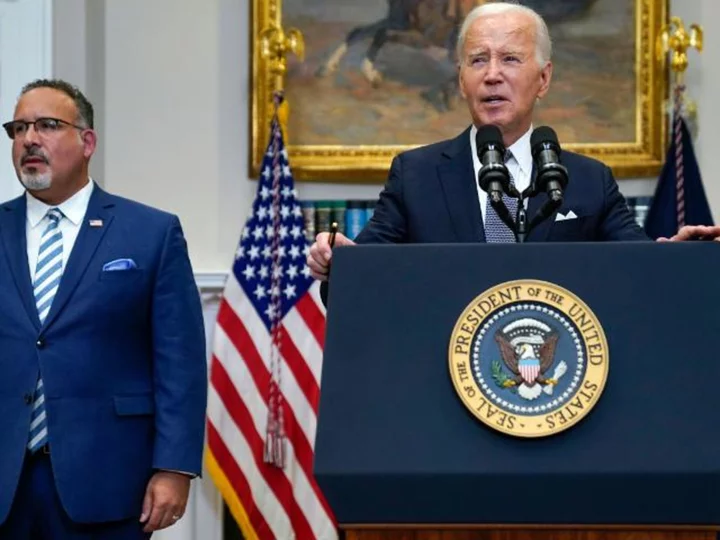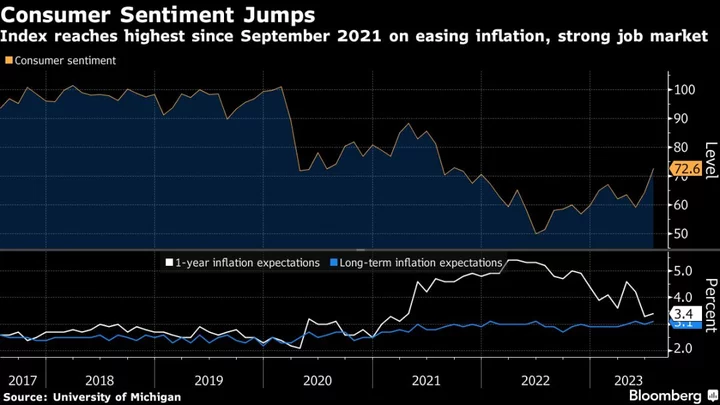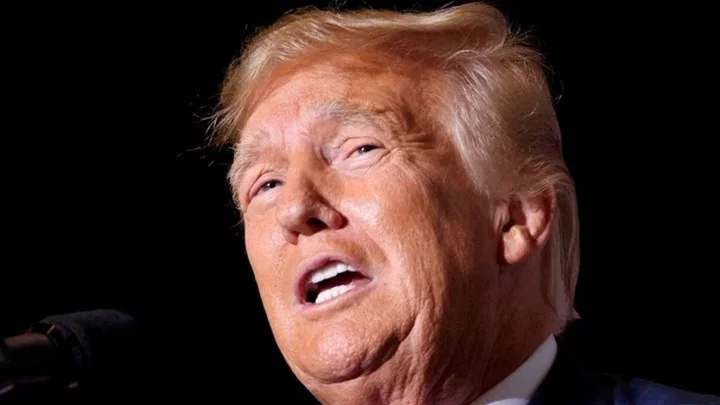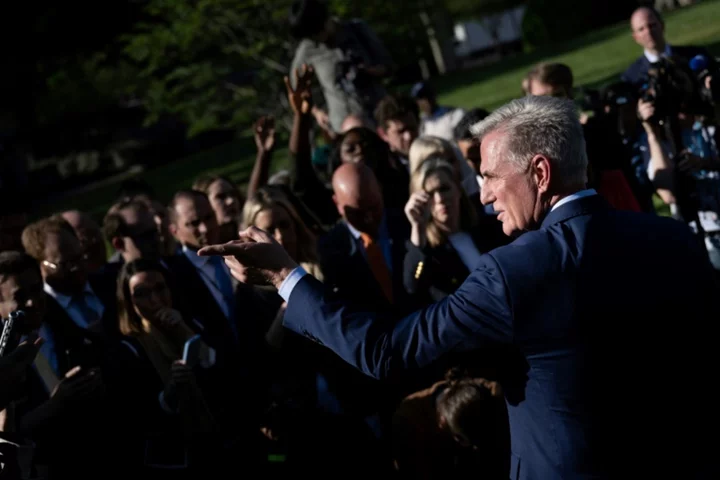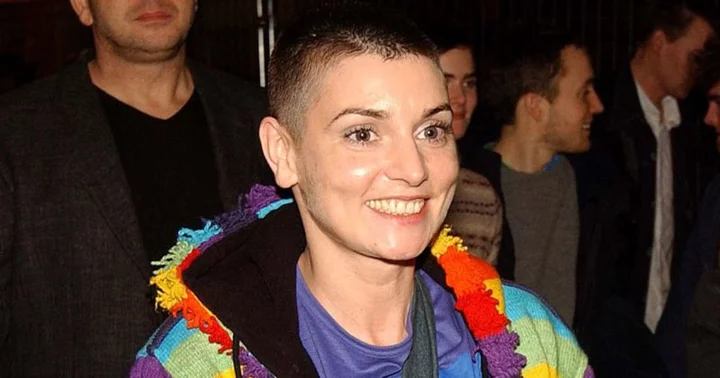President Joe Biden wasn't planning to take questions on Thursday. His helicopter was waiting outside on the White House's South Lawn.
But after a 10-minute statement on the Supreme Court's affirmative action ruling, a CNN reporter called out, "Is this a rogue court?" The president stopped in his tracks.
Pausing to think a moment, he looked over his shoulder. "This is not a normal court," he said before leaving.
This week's monumental rulings -- striking down affirmative action in college admissions and unraveling Biden's student debt relief plan among them -- amount to serious setbacks for a president who promised as a candidate to advance racial equity and erase student debt.
They are also an urgent reminder to Democrats of the enduring consequences of elections at a moment Biden's advisers are searching for ways to inject enthusiasm into his bid for another term.
What impact that will have on the coming election remains unknown. But Biden and his team have already begun assigning blame on Republicans for dismantling programs that have benefited young, college-educated and minority voters -- all critical components of the Democratic coalition Biden will need to mobilize if he hopes to win reelection.
That three justices within the court's conservative majority were appointed by President Donald Trump -- both Biden's predecessor and, according to polls, his most likely opponent next year -- creates even more of an impetus for Biden to use the rulings as a political cudgel as his campaign heats up.
"The excesses of the Supreme Court are going to backfire," said Rep. Ritchie Torres, a New York Democrat. "You know, the Supreme Court's decision to overturn Roe versus Wade reduced what was supposed to be a red wave in the 2022 election cycle to nothing more than a red trickle. So not only is the Supreme Court's decision bad law, it's also bad politics and it's going to come back to haunt the Republican Party."
Speaking to a group of Democratic donors in New York City on Thursday evening, Biden sought to underscore the stakes of the court's new supermajority, a preview of how he'll frame the issue over the coming year.
"The Supreme Court is becoming not just conservative, but almost -- it's like a throwback. It's like a throwback, some of the decisions they're making," Biden told donors in a private dining room inside the Seagram Building. "Did you ever think we'd be in a position, after 50 years of acknowledging the right of privacy in the Constitution, suggesting that there's no such thing as the right to privacy?"
Despite his criticism of the court, Biden has rejected some liberal suggestions on reforming the panel. He opposes expanding the number of justices that sit on the court and hasn't embraced term limits.
"If we start the process of trying to expand the court, we're going to politicize it, maybe forever, in a way that is not healthy," Biden said during a friendly interview on MSNBC shortly after Thursday's decision on affirmative action.
The administration searches for a Plan B on student loans
Biden's student loan plan, which came about last year after months of agonizing internal debate over its costs and eligibility criteria, was intended to free low- and middle-income Americans from crippling debt.
Throughout the process, Biden expressed concern at being seen as offering a handout to the wealthy. Eventually, pressure to fulfill one of his top campaign promises led to the plan to forgive up to $20,000 in student loan debt for certain borrowers.
For months the White House publicly said there was no alternative plan if the Supreme Court struck down the student debt relief program. But behind the scenes, top White House officials were working for several weeks to fulfill a simple directive from the president to "be ready in the event the Supreme Court did not do the right thing," White House officials said.
The president's charge to his team was described as this: "If the court ruled against the program, find other ways to deliver relief for as many working and middle-class borrowers as possible, accounting for all the legal issues."
For the past few weeks, White House chief of staff Jeff Zients gathered his team for weekly meetings to map out all scenarios for the Supreme Court's ruling and explore all legal avenues available to them after the president told his team to build a "fully developed response" to all possible rulings, officials said.
Zient's office -- led by deputy chief of staff Natalie Quillian, the Domestic Policy Council, National Economic Council and White House Counsel's Office -- worked with the Department of Education and the Department of Justice to come up with options the administration could take if the ruling was not in their favor.
"All of these meetings were structured around one question -- how would we be able to deliver relief to as many borrowers as we could, as quickly as possible under any possible outcome of the Supreme Court," official said.
The White House also stayed in touch with and fielded suggestions for next steps from debt relief advocate groups and congressional allies throughout the process. Lawyers from the White House, Justice Department and Education Department examined all of the recommendations, including administration action and the legal authorities available to the administration, and ultimately crafted responses for multiple scenarios.
Inside the White House, some officials had held out hope the court would uphold Biden's student debt program, pointing to some surprising decisions over the past weeks that saw some conservative justices joining liberals on issues of voting rights and congressional redistricting.
But even Biden acknowledged after the court's oral arguments in February he wasn't certain the ruling would go his way.
"I'm confident we're on the right side of the law," Biden told CNN in March when asked if he was confident the administration would prevail in the case. "I'm not confident of the outcome of the decision yet."
His instinct was correct. The president was in the Oval Office on Friday morning when he was informed of the Supreme Court's decision by his senior aides and then engaged in meetings stretching into the afternoon to fine-tune their response after the ruling was not in their favor.
Ultimately, the president directed his team to move forward with a new plan, which includes pursuing a new path for debt relief through the authorities in the Higher Education Act of 1965, which was promoted by some debt relief advocate groups and progressive lawmakers, as well as creating a temporary 12-month "on-ramp repayment" program for federal student loan borrowers when payments resume in October.
Showing urgency
A day earlier, Biden was watching the news on television when the affirmative action decision was handed down by the court, according to an official. A team from the White House counsel's office came to brief him on the ruling.
"In our conversations with the White House about why student debt cancelation was needed, it's about reducing the racial wealth gap," said Wisdom Cole, national director of the Youth & College division at the NAACP. "If the administration is committed to diversity, equity, and inclusion, they must use every tool in their toolkit. Every legal authority to ensure that we see relief happen."
Demonstrating urgency in responding to the court's actions was a key objective as the White House prepared for both rulings, according to people familiar with the matter.
Looming over the preparations was the impression left after last year's Supreme Court term that the Biden administration was unprepared for the decision striking down the nationwide right to abortion, despite a leaked court opinion months ahead of time indicating the justices were prepared to overturn Roe v. Wade.
The White House has strongly denied it was caught flat-footed on abortion and has pointed to actions taken in the months after the decision to expand access, including to medication abortion.
The issue proved galvanizing to Democratic voters in November's midterm elections and has propelled Democratic victories even in traditionally Republican districts.
Whether the court's ruling on student debt relief and affirmative action can have a similar effect will prove critical over the coming year, as Biden works to convince voters he is still fighting to fulfill his promises. Initial reaction from progressive Democrats was positive.
"It was not a foregone conclusion that the President would act so swiftly today. But he announced an alternative path to student debt cancellation by using his Higher Education Act authority given by Congress -- and that deserves praise," said Adam Green, co-founder of the Progressive Change Institute.

